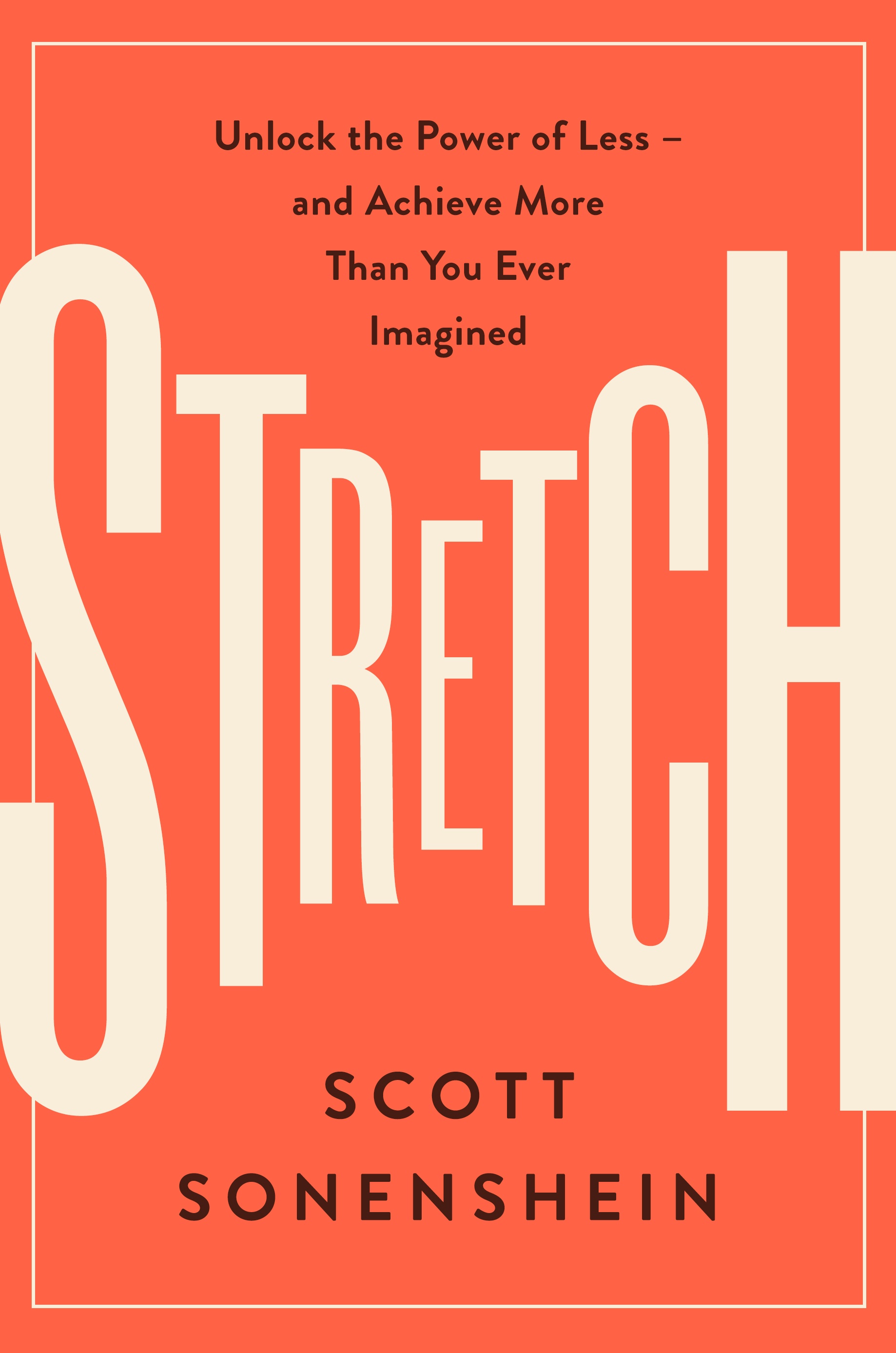
Scott Sonenshein is the co-author with Marie Kondo of Joy at Work. He is a chaired professor at Rice University and the bestselling author of Stretch. He received his PhD in organizational behavior from the University of Michigan and has written for the New York Times, TIME, Fast Company, and Harvard Business Review.
Ask most people to describe the path to success, and their answer will likely call for “more” — more money to buy things, more time to do things and more knowledge to inform things. There’s an intuitive appeal to this argument. “More” is thought to be both a cause (the more we have, the more we can do) and a consequence (to the victor go the spoils) of success.
As alluring as this approach appears, recent research has started to call it into question. When we are focused on getting more, we overlook the value of what’s already in hand. We emphasize the wrong things — accumulating resources instead of taking productive steps to accomplish our ultimate goals. Over time, the more approach even makes us less adaptive and less satisfied.
There’s another way to achieve: stretching. The science of stretching offers an effective, more fulfilling alternative that invigorates us to do more without needing more. It draws from a range of research to explain why some people can do a lot with so little, while others squander so much. Stretching involves practical techniques and tools anyone can learn to use to accomplish more with whatever they have.
When we’re stretching, we are engaged with our resources. We see their potential, rather than worry about their perceived limitations. This helps unlock even greater possibilities for what’s already in hand — whether it’s time, money, materials or even relationships. A shoe becomes a hammer. A competitor becomes a friend. A constraint becomes an opportunity.
Stretching also helps us adapt to changes in our resources. When times unexpectedly take a turn for the worse, longtime habits of stretching ready us to work through these challenges. With too many resources around, we become distracted by accumulation, focused on the wrong goals and wasteful of what we do have. (Think of economic bubbles, like the dot-com bust or the housing crash.) By the time resources stop flowing in, it’s usually too late to change. We lack the crucial skill of stretching — both the discipline and imagination to be more productive with whatever we have.
To start stretching, ask a simple question: What can I do with what I have? This bypasses the paralyzing trap of waiting to get more in order to do more. Stretching also avoids the stress of agonizing over the question, What I am missing that others have? Psychologists find that it’s difficult to be productive and satisfied with what you have when you’re constantly making comparisons to others.
Next, recognize that having less can sometimes jumpstart us to become more creative. Constraints force us to view problems and solutions in a new light. The power of less allows everyone from artists to executives to deliver better work because of an important way we approach the world when facing constraints. Having less releases us from the need to do things conventionally. That’s why research shows that some of the world’s most complex problems tend to be solved by those with the least direct knowledge about the problem.
You can harness this power by purposefully imposing constraints of your own. Move up a deadline or cut a budget. You’ll not only learn it’s possible to meet goals with restrictions, but also you’ll be surprised at the better solutions you can discover.
Another technique: Expose yourself to novel situations. Instead of sticking to your daily routines, experiment with doing things differently. Drive to work using a different route. Talk to someone with very different beliefs and backgrounds. Build a more diverse team at work. You’ll experience the world in new ways that inspire you to see how you can better achieve your goals. Research shows that by having such outsider experiences you stretch resources such as knowledge in more effective ways.
Finally, stop planning every detail and just start moving. Spontaneous action frees us to constantly learn and adjust our actions to meet goals. Too often we rigidly stick to plans that quickly become irrelevant and don’t lead us any closer to hitting our goals. It’s hard to expand what we have when we’re so focused on just executing our plans.
You already have everything you need to succeed. Just stretch. Imagine how liberating it would be to stop worrying about what you don’t have and start engaging with what you already have in more productive and satisfying ways.
More Must-Reads from TIME
- Why Trump’s Message Worked on Latino Men
- What Trump’s Win Could Mean for Housing
- The 100 Must-Read Books of 2024
- Sleep Doctors Share the 1 Tip That’s Changed Their Lives
- Column: Let’s Bring Back Romance
- What It’s Like to Have Long COVID As a Kid
- FX’s Say Nothing Is the Must-Watch Political Thriller of 2024
- Merle Bombardieri Is Helping People Make the Baby Decision
Contact us at letters@time.com